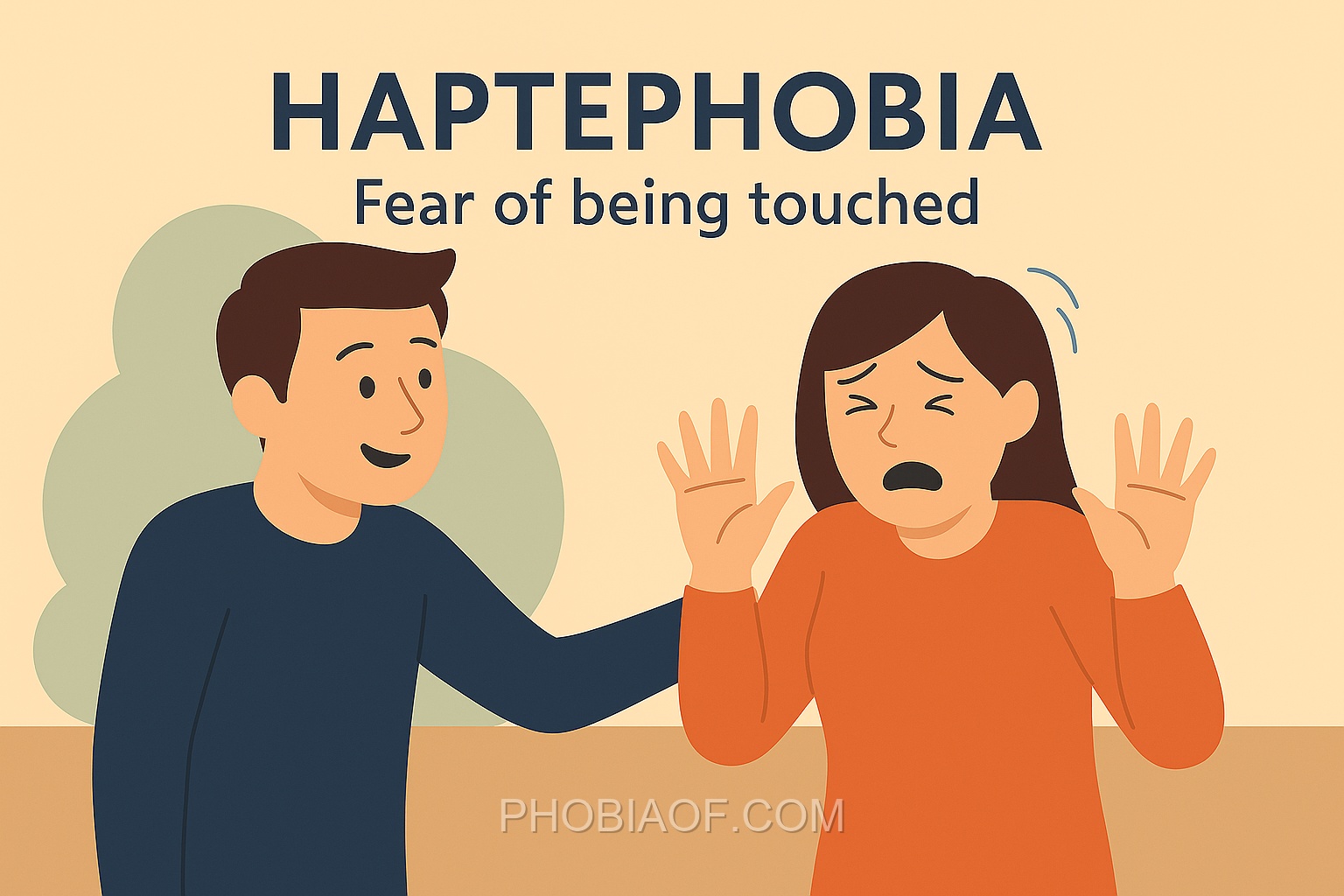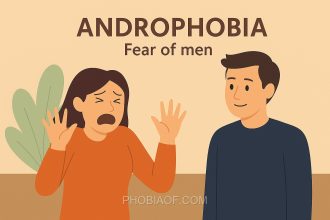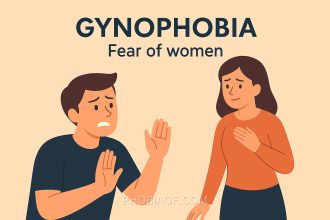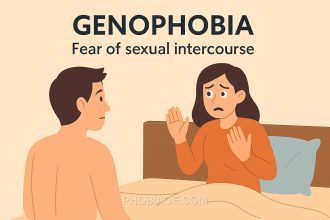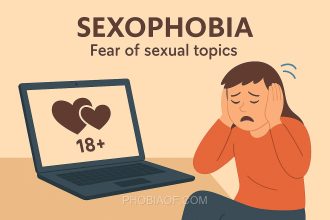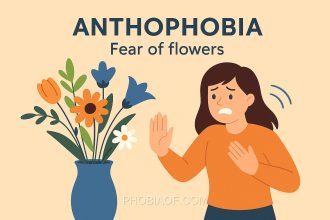Have you ever felt uneasy at the thought of a simple handshake or a friendly hug? For some, this discomfort goes beyond mere shyness or personal space preferences—it transforms into an intense fear known as Haptephobia.
Haptephobia is the fear of being touched. The term derives from the Greek words “haptein,” meaning “to touch,” and “phobos,” meaning “fear.” This phobia can manifest in varying degrees, affecting individuals in different ways. For some, it might be a mild aversion, while for others, it might provoke significant anxiety or panic.
People with Haptephobia may avoid situations where physical contact is likely, such as crowded places or social gatherings. This fear can impact daily life, affecting personal relationships and sometimes leading to feelings of isolation or loneliness.
Understanding Haptephobia is crucial for fostering empathy and support for those who experience it. By recognizing the challenges it presents, we can create a more inclusive and considerate environment for everyone.
Causes of Haptephobia
Haptephobia, the fear of being touched, can arise from a variety of causes. Understanding these potential causes can help in addressing and managing this phobia effectively. Below are some common reasons why someone might develop haptephobia.
- Genetic Predisposition:
Some individuals may have a genetic predisposition to anxiety disorders, which can include specific phobias like haptephobia. If there is a family history of anxiety or phobias, it might increase the likelihood of developing similar fears.
- Traumatic Experiences:
One of the most significant causes of haptephobia is experiencing a traumatic event involving unwanted or harmful touch. This can lead to lasting psychological effects and result in a heightened fear response to physical contact.
- Learned Behavior:
Observing others who exhibit fear of touch can also contribute to developing haptephobia. If a child sees a parent or close family member reacting negatively to touch, they may learn to associate touch with fear or danger.
- Psychological Factors:
Individuals with other anxiety disorders or mental health issues may be more susceptible to developing phobias. The presence of such conditions can exacerbate fears and make it more challenging to cope with physical contact.
- Environmental Factors:
Growing up in an environment where touch is rare or discouraged can lead to discomfort with physical contact. Cultural norms that discourage physical touch can also play a role in the development of haptephobia.
While these factors can contribute to the development of haptephobia, it is often a combination of elements that leads to the onset of this fear. Interestingly, some research suggests that phobias, including haptephobia, might be linked to the brain’s response to perceived threats, indicating that neurological factors could also play a role.
By understanding these potential causes, individuals can seek appropriate support and interventions to manage their fear of touch and improve their quality of life.
Symptoms of Haptephobia
Haptephobia, also known as the fear of being touched, can evoke intense fear or anxiety in those affected. This phobia can manifest in various ways, impacting both the mind and body. Understanding the symptoms can help in recognizing the condition in oneself or others.
Physical Symptoms:
- Panic attacks, characterized by sudden and intense feelings of fear.
- Excessive sweating, especially when the possibility of being touched arises.
- Rapid heartbeat or palpitations, often accompanied by a feeling of chest tightness.
- Shortness of breath or hyperventilation in situations perceived as threatening.
- Trembling or shaking, which can occur when confronted with the fear.
- Feeling dizzy or lightheaded in anxiety-inducing situations.
Emotional and Behavioral Symptoms:
- Overwhelming dread at the thought of physical contact.
- Avoidance of situations or places where touching might occur, such as crowded areas or social gatherings.
- Intense desire to escape from situations where touching is possible.
- Feelings of distress or irritation when personal space is invaded.
- Persistent worry about upcoming events that may involve physical contact.
When haptephobia is severe, these symptoms can significantly interfere with daily life, making social interactions and routine activities challenging and stressful.
Treatment for Fear of Being Touched
Overcoming haptephobia, or the fear of being touched, is entirely possible with the right treatment and support. It’s important to remember that this phobia can be managed and reduced over time, allowing individuals to lead a more comfortable and fulfilling life. Below are several treatment options and coping strategies that have proven effective.
Proven Therapies
- Exposure Therapy: This involves gradually facing the fear in a controlled and safe environment. By slowly increasing exposure to touch, individuals can desensitize their response and reduce anxiety over time.
- Cognitive-Behavioral Therapy (CBT): CBT focuses on identifying and changing the fearful thoughts and beliefs that contribute to the phobia. It helps individuals develop healthier thinking patterns and coping mechanisms.
- Counseling: Speaking with a mental health professional can provide a supportive space to explore the roots of the phobia and develop personalized strategies for managing it.
Self-Help Coping Techniques
- Relaxation Exercises: Techniques such as deep breathing, progressive muscle relaxation, and visualization can help calm the mind and reduce anxiety symptoms.
- Meditation: Regular meditation practice can enhance overall emotional resilience and help manage stress related to the phobia.
- Support Groups: Connecting with others who have similar experiences can provide encouragement, understanding, and practical advice.
In some severe cases, medication such as anti-anxiety meds may be considered to help manage symptoms, but the focus should remain on therapy and coping skills for long-term improvement.
If haptephobia is interfering with your daily life, it’s crucial to seek professional help. A mental health expert can guide you through these treatment options and help you find the best path forward. Remember, with the right support, overcoming the fear of being touched is achievable.
Conclusion
Understanding the causes and symptoms of haptephobia is a crucial step toward addressing and overcoming this fear. By recognizing the underlying factors and how they manifest, individuals can begin to take control of their experiences and seek appropriate support. Awareness empowers you to confront the fear of being touched with confidence and informed strategies.
It’s important to remember that many people successfully manage or overcome their phobias with time and the right resources. Whether through therapy, support groups, or self-help strategies, there are multiple paths to finding relief and comfort. If haptephobia is impacting your daily life, consider reaching out to a therapist or talking to a doctor to explore the options available to you.
Take heart in knowing that progress is possible, and you are not alone on this journey. With patience, understanding, and support, overcoming haptephobia is within reach.
